Science of the Future

Longtermism and AI: How Silicon Valley has shaped the debate on artificial intelligence around fears of human extinction
Silicon Valley's favourite philosophy, longtermism, has helped to frame the debate on artificial intelligence around the idea of extinction ...
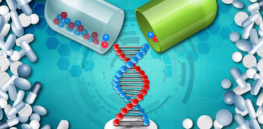
AI drug development breakthroughs open up possibility of faster, cheaper pharmaceutical production. Do these medications work?
Today, on average, it takes more than 10 years and billions of dollars to develop a new drug. The vision ...
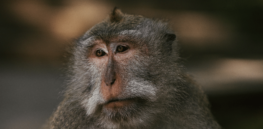
Monkey kept alive for two years with a genetically engineered pig kidney suggests pathway to developing organs for humans
Harvard-affiliated scientists say they have been able to keep a monkey alive for two years with a genetically engineered pig ...
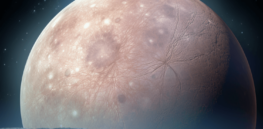
Making the case for finding alien life sooner rather than later
Nasa's James Webb Space Telescope (JWST) recently detected tantalising hints at life on a planet outside our Solar System ...
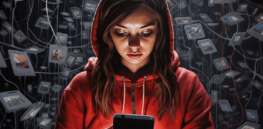
8 ways to help you identify social media misinformation and AI imagery
How do you know what to trust: There are some basic tools everyone should use when consuming breaking news online ...

Could or should we use science to bring the Tasmanian tiger back from extinction?
CRISPR and the Tasmanian tiger: Resurrecting the species could help restore ecological balance in Australia ...

Search for elusive angel shark and growing revolutionary field of bio-tracking environmental DNA
Today, with the Natural Marine Park of Cap Corse and Agriate, we can find rare sea life without having to ...
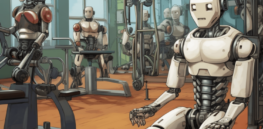
A gym without trainers? Here’s how AI is already revolutionizing workouts
Wall-to-wall LED screens, algorithms, and motion tracking sensors allow Lumin Fitness to offer supervised workouts with no human interaction ...
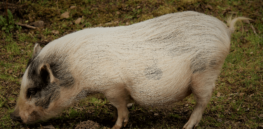
Heart from a genetically engineered pig transplanted into a human, for the second time
In a new test of xenotransplantation, a medical team at the University of Maryland Medical Center announced [September 22] that, for ...
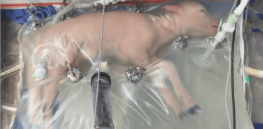
From lambs to humans: Artificial wombs are on the horizon
A hairless, pale-skinned lamb lies on its side in what appears to be an oversized sandwich bag filled with hazy ...
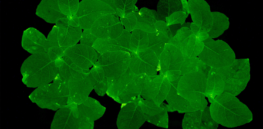
Glow-in-the-dark houseplants: Bioluminescent flowers made using mushroom genes should be available by next spring
The genetically engineered plants produce a neon green hue, thanks to the addition of DNA from a type of bioluminescent ...

Brain-computer interface: Elon Musk’s Neuralink venture hopes to dramatically increase communication. What’s he up to?
Elon Musk claimed that sticking electrodes in people’s heads is going to lead to a huge increase in the rate ...

AI helps craft crops that can stand up to climate change
Previously, we grew improved versions of crops by growing multiple, comparing them, and then planting the seeds of the one ...
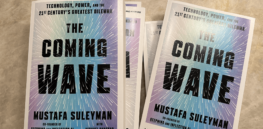
The Coming Wave: DeepMind co-founder’s book sends terrifying warning about AI and synthetic biology – but how seriously should we take it?
The Coming Wave is DeepMind founder Mustafa Suleyman’s book-length warning about technological expansionism: in close to 300 pages, he sets ...
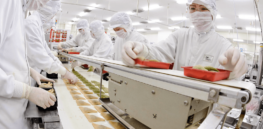
Animal-free cheese and other high tech foods taking page out of electric car industry’s financial strategies to grow in a highly-competitive market
"We need to meet people where they are today," said Magi Richani, founder and CEO of San Francisco-based Nobell Foods ...
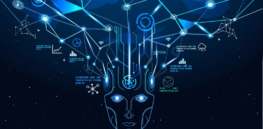
Interactive AI: What’s next after ChatGPT and other artificial intelligence chatbots?
DeepMind cofounder Mustafa Suleyman wants to build a chatbot that does a whole lot more than chat. In a recent ...
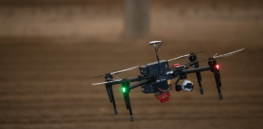
With sustainability and productivity challenges mounting, South African farmers warm to agro-technology
Farmers have now found ways to improve the basic farming methods with state-of-the-art agritech ...
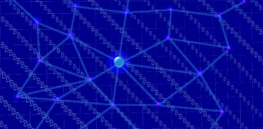
Viewpoint — Convergence of AI and the blockchain: A new phase of human evolution or humanity’s downfall?
In a thought-provoking essay, blockchain pioneer Trent McConaghy argues that artificial intelligence (AI) and blockchain are destined to converge, enabling ...

Viewpoint: Medical, financial and ethical hurdles block humanity’s dream to settle space
Companies such as United Launch Alliance and Lockheed Martin are designing infrastructure for lunar habitation. Elon Musk has claimed SpaceX will ...
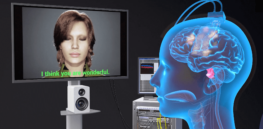
Video: Communication of the future? Brain implant allows paralyzed woman to speak through an AI avatar
After Ann Johnson suffered a stroke 18 years ago, she became paralyzed and lost the ability to speak. Now, with ...
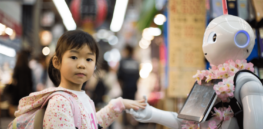
Can AI chatbots ‘feel’?
Generative AI has made giant strides toward machine intelligence. Can machine consciousness be far behind? ...

There are now more than 1 million donor-conceived children in the US. That’s creating inequities in egg freezing and donor brokering
There is significant reproductive injustice and lack of access to fertility treatments by diverse populations. Nowhere is this more obvious ...

An embryo was grown in lab without sperm, eggs or a womb. Here’s why scientists created it
Scientists have grown an entity that closely resembles an early human embryo, without using sperm, eggs or a womb ...
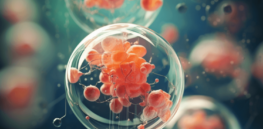
‘Closest thing to human embryos yet’: Lab-grown fertilized cells more advanced and living longer than ever
Human embryo replicas: The lab-engineered models give scientists a look at human development beyond the first week ...

With a moon base expected by 2030, engineering space fuel is just one of many challenges scientists face
Scientists have developed an energy source which could allow astronauts to live on the Moon for long periods of time ...

Sustainable fashion’s next frontier: Fabric made from bacteria, waste, and carbon
Scientists are hoping to start a fashion trend: making clothes from materials that reduce environmental harm ...
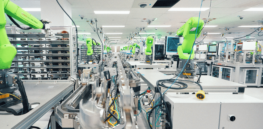
How Ginkgo Bioworks leverages synthetic biology to shape future of food
Patrick Boyle is currently the Head of Codebase at Ginkgo Bioworks, a Boston-based synthetic biology company that makes and sells ...

